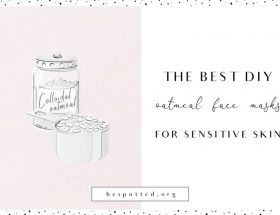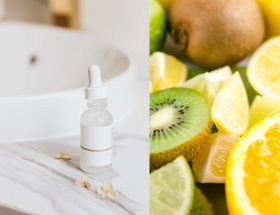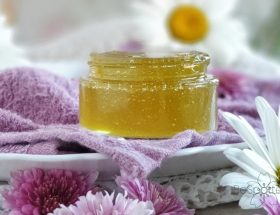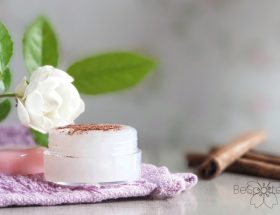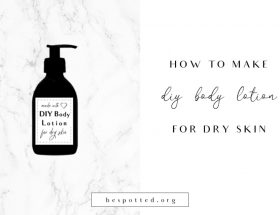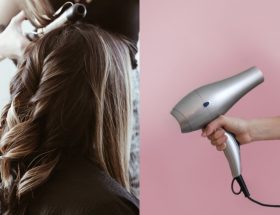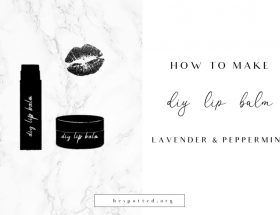This post may contain affiliate links. Any sales made through such links will reward me a small commission – at no extra cost for you!
Cleanser, moisturizer, sunscreen – the three absolute essentials we all need. But how to build your minimalist skin care routine so that it truly works for you?
Have you ever wondered how some people seem to have flawless complexions, even without makeup? While good genes play a role, the study of epigenetics teaches that lifestyle changes can influence how they behave. That means the choices you make each day can make a big difference in your overall appearance.
Minimalist skin care may be your best route to the flawless complexion you seek. People on a specialized regimen of creams, oils, astringents and peels may need to rethink their routines.
Your approach might work — but at worst, it can do more harm than good, clogging pores and leaving skin coated in gunk that stains your pillowcase overnight. At best, it unnecessarily complicates your life, unless you enjoy spending hours in front of the bathroom mirror.
Trying a different approach can lead to beauty breakthroughs. Here’s the skinny on minimalist skin care and finding your best routine with fewer products.
1. Nourish Your Skin for Optimal Health
True beauty starts on the inside. The right foods supply your skin with the vitamins and other nutrients necessary for a healthy, glowing complexion. Likewise, deficiencies can leave you looking dull and ashy, cause acne breakouts or spur premature aging, no matter how many creams and ointments you apply.
You can take supplements, but your body processes nutrients from food far more efficiently. In addition, many foods contain various macro and micronutrients in proportions you won’t find in a pill or powder. For example, seafood contains omega-3 fatty acids, protein, collagen, and vitamins like A and D.
Nutrients you need for optimal skin health include the following:
- Vitamin E: Vitamin E is one of many antioxidants that help fight the damaging effects of free radicals. Free radicals are unpaired electrons resulting from oxidative stress, and they ravage your body’s cells looking for mates. Antioxidants carry them safely out of your body before they can damage skin cells.
- Biotin: Biotin is often known as the “beauty vitamin” because it’s a must for healthy skin and nails, helping your body digest other nutrients to avoid deficiency. Eggs, bananas and sweet potatoes are good sources.
- Collagen: This protein is a bit tricky to get if you follow a vegan diet, but it’s essential for supporting the underlying structure of your skin. Fortunately, some manufacturers have developed vegan alternatives that contain similar amino acids from plant-based sources.
- Omega-3 fatty acids: Seafood is your best source of these nutrients, although you also find them in flax and chia seeds. Most Americans consume too few compared to omega-6, which can cause unpleasant skin issues like flakiness or acne while impacting brain and heart health.
However, this list is not comprehensive. Scientists still haven’t classified all the beneficial compounds of various foods and their health effects. Your best bet is to eat a varied diet high in the above nutrients. Focus on lean proteins and plants in different hues, supplemented with whole grains.
Additionally, you should reduce or eliminate your consumption of unhealthy fats, white flour and sugar. These substances increase inflammation, which contributes to multiple chronic conditions, including skin trouble. Some people may also find relief from cutting back on dairy, which contains insulin-like growth factor 1. It may contribute to PCOS, a condition nearly synonymous with acne.
2. Reduce Lifestyle Choices That Negatively Affect Your Appearance
Even the healthiest diet can’t compensate for long nights spent indulging in too much alcohol or baking yourself to a crisp under the noonday sun. To look beautiful from the inside out with a minimalist skin care routine, you need to reduce or eliminate lifestyle choices that mess up your complexion.
A little sun is good — it provides a healthy glow and helps your body produce natural vitamin D. However, too much exposure hastens aging. One product you should keep in your minimalist skin care routine is a quality sunscreen.
You’ve probably seen lifelong smokers bear the sunburst of vertical lines around their lips from decades of inhaling. These products also contain toxins that age and stress your skin’s cells, so consider taking advantage of the myriad free resources available to help you quit.
Alcohol dehydrates every cell in your body, including your skin. It’s also a potent toxin, increasing the oxidative stress load your skin cells carry. It also makes you urinate more frequently, flushing out vital nutrients that could otherwise nourish your complexion.
Adopting a healthier diet and eliminating lifestyle factors that damage skin is your first step to a minimalist skin care routine with fewer products. The rest boils down to savvy skin sense.
3. Consider a Skin Analysis
You can probably tell if your skin is dry, oily or a combination. However, you might consider a professional analysis if you have ongoing problems that have lasted six months or longer.
Your typical esthetician uses sight to examine your complexion and make personalized recommendations. However, dermatologists have access to diagnostic equipment that can take a deeper look below the surface to identify what needs correction the most.
4. Understand the Power of Various Ingredients
Walk into any drug store and you’ll quickly grow dizzy from the vast array of skin care creams. Dive into the even deeper, more mysterious depths of specialty brands, and you may feel as if you are drowning.
Take heart. You can demystify the process by learning what various ingredients do and choosing accordingly. You don’t have to use them all – remember, your goal is minimalism. Choose one or two that address your most pressing skin issues:
- Retinoids: These vitamin A derivatives treat acne. They also address sun-damaged skin and reduce fine lines and wrinkles. However, they often make your skin look worse before it adapts and gets better — the “retinoid uglies” are real.
- Vitamin C: This nutrient protects against free radicals when applied topically and can help prevent sun damage.
- Alpha-hydroxy acids: These combine glycolic, citric and lactic acid. They remove dead skin cells and stimulate new growth.
- Coenzyme Q-10: This nutrient can heal your delicate under-eye area.
- Niacinamide: This substance is related to niacin. It helps prevent moisture loss and increases elasticity.
- Peptides: These stimulate collagen production to reverse wrinkles.
- Ceramides: These are fatty acids that make up the outside of skin cells and prevent dryness and infection.
A dermatologist can recommend the right products for your unique skin type. Otherwise, your best bet is to look for products containing ingredients that have the properties you need the most, using trial and error to find the most effective ones.
5. Customize a Routine That Works for Your Lifestyle
Here’s the deal: You shouldn’t fall asleep wearing a full face of makeup. Your cells regenerate during sleep, which creates lubricating oil. Makeup prevents these oils from escaping, keeping them trapped in pores where they may cause acne. If nothing else, you should use a wipe to remove the day’s debris, even if you reach the point of exhaustion by day’s end and prefer a more intensive morning routine.
Other people with different schedules might make their nightly skin care routine into a pre-bedtime ritual. There is something soothing about tending to a bit of self-care before you lie down to rest, perhaps while reciting your favorite affirmations to boost your self-confidence. Then again, morning people can use a similar process to pump themselves up for the day ahead.
Regardless of whether you do most of your skin care before bed or in the morning shortly after you wake, you should apply sunscreen before heading out for the day.
6. Enhance Your Natural Beauty Instead of Covering It Up
What about makeup? The glorious part about minimalist skin care that works from the inside out is that you don’t need tons of coverup and foundation to smooth your complexion. However, you might feel more comfortable enhancing what nature gave you.
Tinted moisturizer or sunscreen is a glorious alternative to heavier foundations. It looks more natural, and you must protect yourself from UV damage anyway — make this step in your routine do double duty.
Many lip glosses and balms contain hints of color that look natural. A touch of mascara enhances your lashes, and a sweep of blush or highlighter brings out your cheeks. You’re ready to face the day with minimal makeup — perfect for showing off your natural glow.
Use Fewer Products for Better Results
Do you spend a fortune on various potions, only to still find fault with your complexion? Maybe it’s time to adopt a minimalist skin care routine by nurturing your natural beauty from the inside out.
Even the best makeup and creams can’t hide or correct issues resulting from nutritional deficiencies and an unhealthy lifestyle. A holistic approach to wellness pays off in a brighter complexion, fewer signs of aging and more money in your wallet.
Written by Cora Gold
Cora is the Editor-in-Chief of women’s lifestyle magazine, Revivalist, where she writes about style, beauty and wellness.












